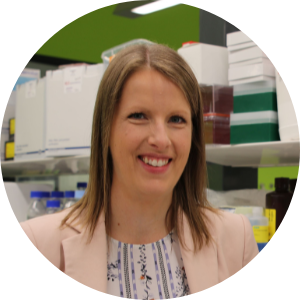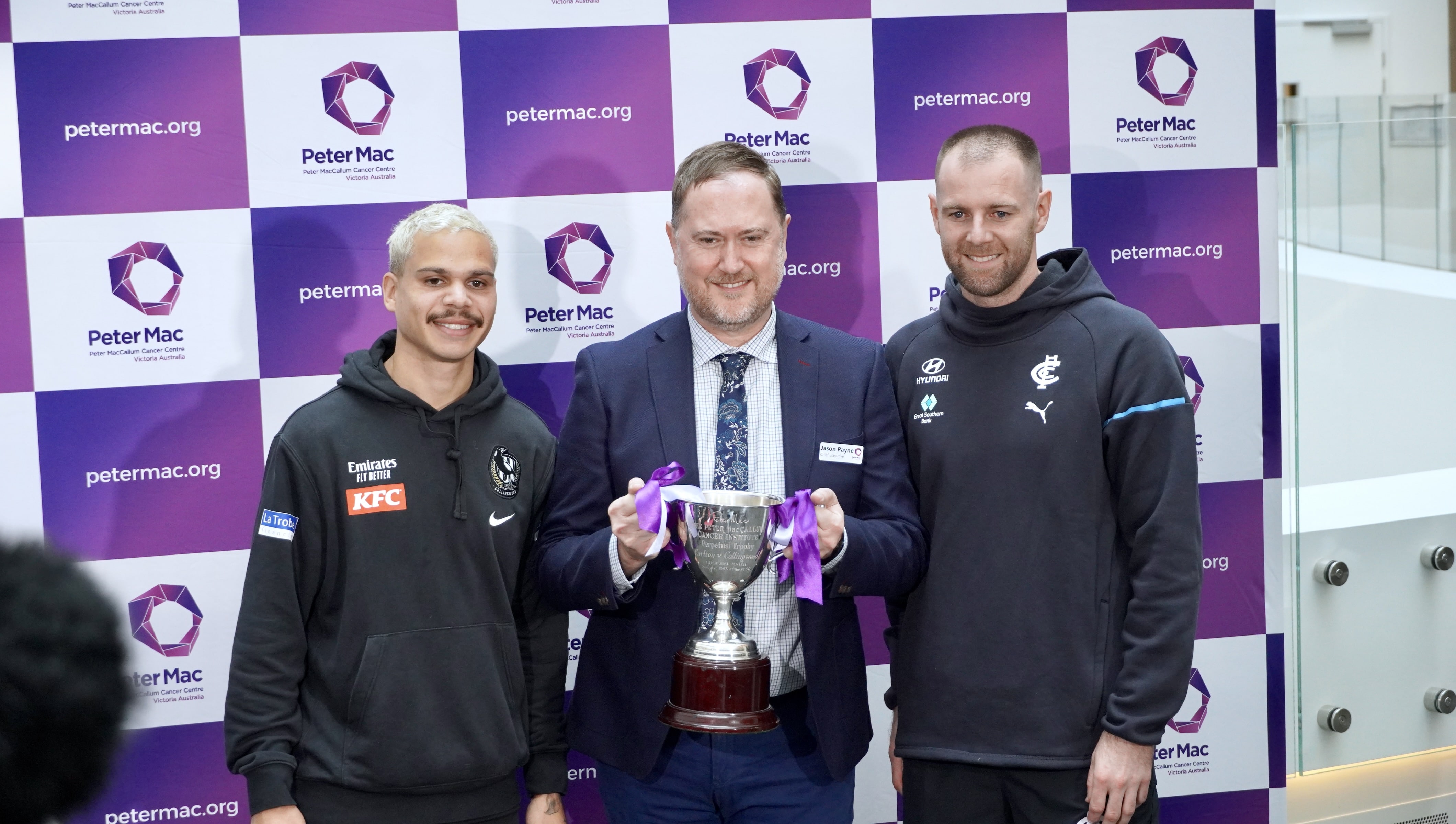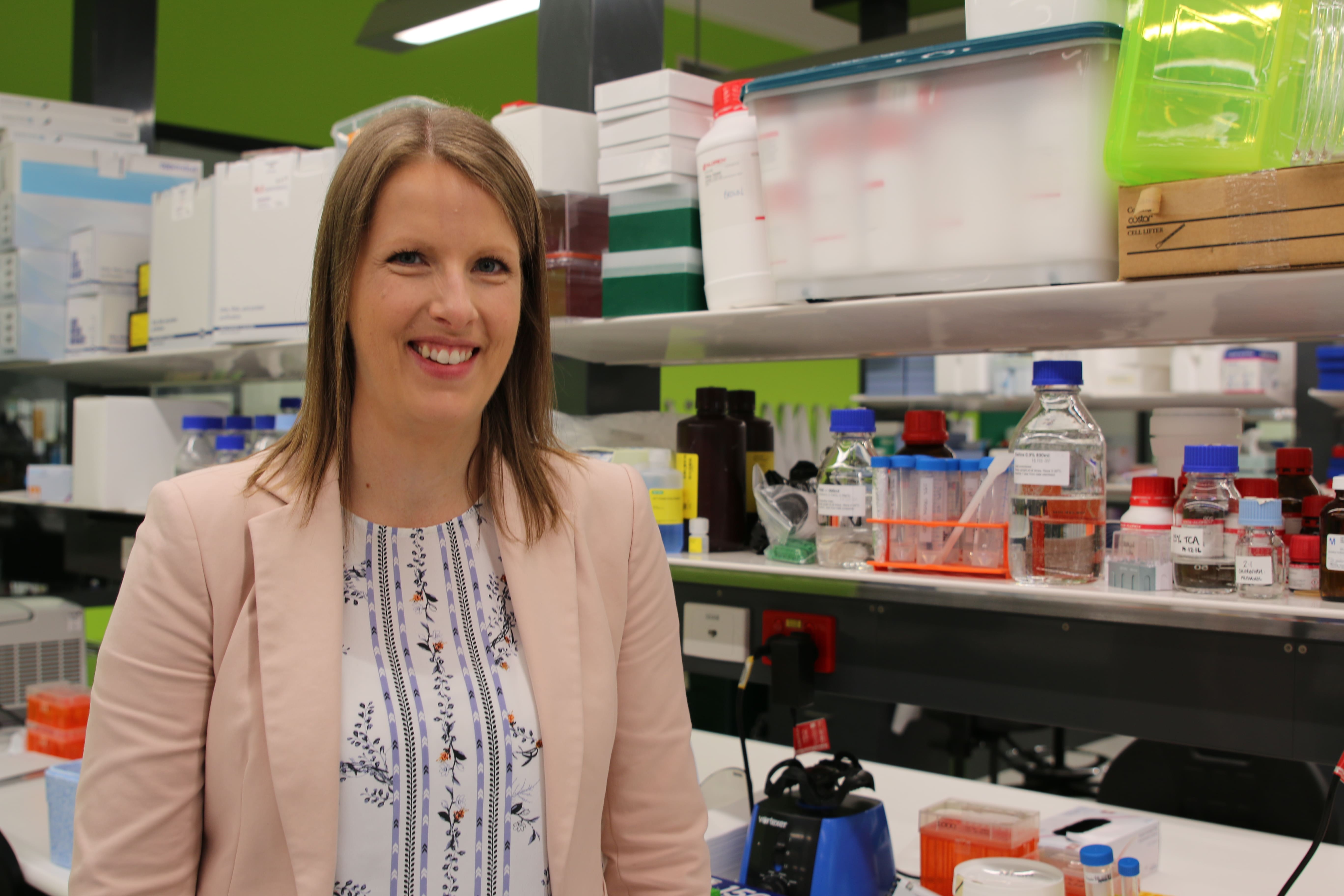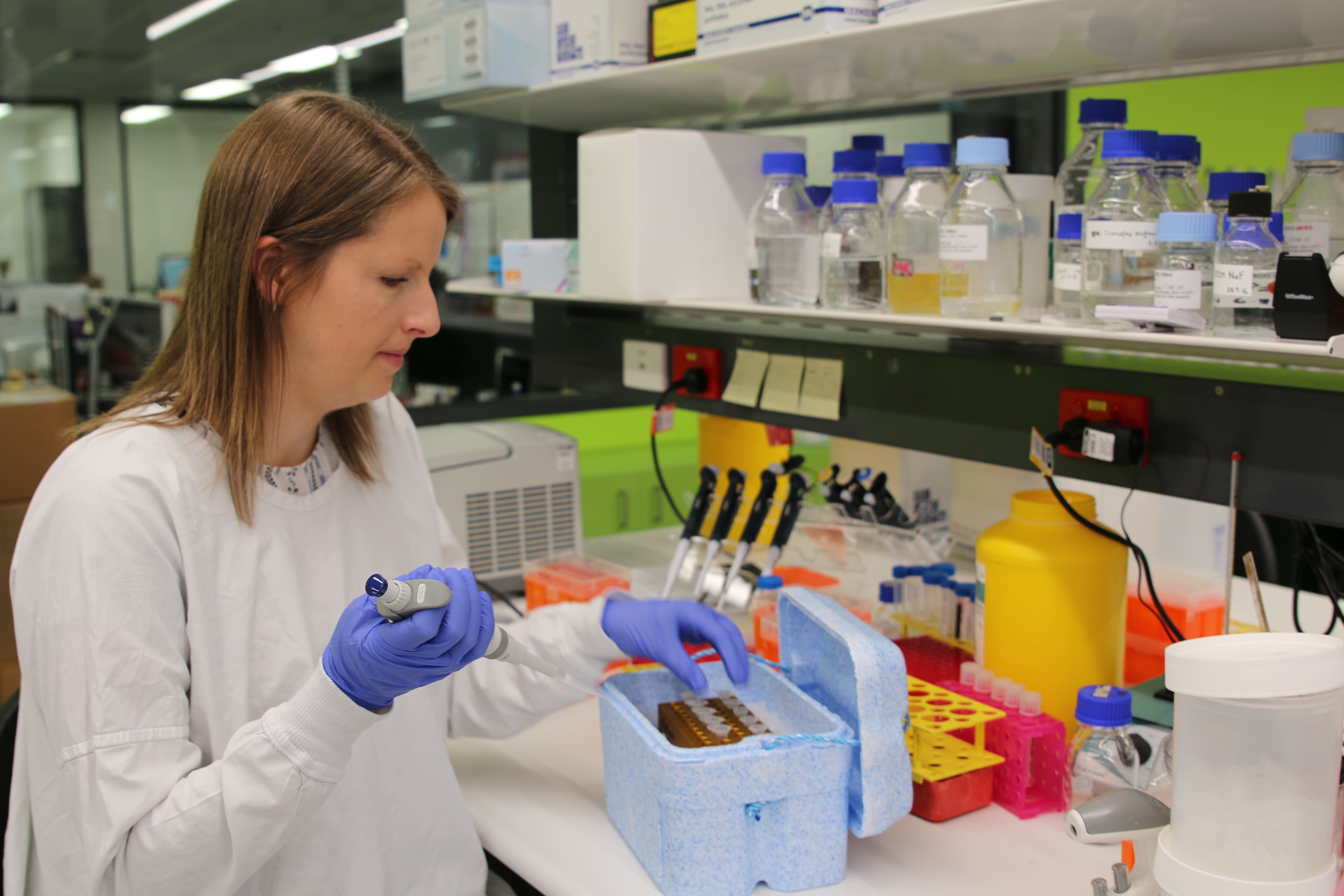Overcoming chemotherapy resistance with Dr Kristin Brown
01 December 2022
For many cancer researchers and patients, chemotherapy resistance remains one of the biggest barriers they face when it comes to the effective treatment of cancer. Cancer cells are tricky, and they can learn to adapt and become resistant to chemotherapy. When they do, treatment can lose its effectiveness.
One Peter Mac researcher who is committed to overcoming the challenges of chemotherapy resistance is Dr Kristin Brown, a key leader of Peter Mac’s Cancer Biology & Therapeutics program.
For the better part of a decade, Dr Brown’s work as a Peter Mac researcher has been focused on delivering more effective treatments for breast cancer. Thanks to her research, not only do we have a better understanding of how we can overcome chemotherapy resistance in breast cancer, but potentially in all cancer types too.
“Although our research is focused on breast cancer, our studies are more widely relevant, as most cancer patients will be treated with chemotherapy at some stage during the course of their care.”
Dr Brown is one of the several hundred talented cancer researchers working at Peter Mac today, and her research into the metabolic state of cancer cells is helping pave the way for all cancer patients to receive the best possible treatment.
Triple-negative breast cancer and chemotherapy resistance
Around 15% of all people diagnosed with breast cancer have triple-negative breast cancer. While this specific type of breast cancer only makes up a relatively small percentage of those diagnosed, it accounts for around half of all breast cancer deaths.
Currently, triple-negative breast cancer remains one of the most challenging types of breast cancer to treat. One of the key reasons behind this is chemotherapy resistance, as Dr Brown explains:
“Unfortunately, the majority of [triple-negative breast cancer] patients do not respond adequately to chemotherapy and the long-term prognosis for these patients is poor.”
For many triple-negative breast cancer patients, chemotherapy is one of the few effective treatment options available to them. However, if their cancer resists and chemotherapy loses its effectiveness, there may no longer be any other treatment options for those diagnosed.
Even more challenging is the fact that it is very difficult to predict when chemotherapy resistance will occur. In some patients it can happen very quickly, with resistance developing in just a few weeks, and in others it can take months, or even years, before it happens.
“Cancer cells are clever. They do everything they can to continue to grow and survive.”
This is why Dr Brown and her team are working hard to find ways to prevent chemotherapy resistance from happening in the first place. If they succeed, they will overcome one of the biggest barriers to curing this aggressive form of breast cancer.
“We’re identifying the reasons why chemotherapy isn’t effective for these patients and using this information to develop new treatment strategies. We need to improve survival rates for patients with this type of breast cancer.”
Uncovering the secrets of metabolic rewiring
To stop cancer cells from building a resistance to chemotherapy, a key area of Dr Brown’s research involves studying the unique cellular metabolism of cancer cells.
Simply put, cellular metabolism describes the various processes in which cells are able to gather the energy and nutrients they need to grow, develop, and repair damage. Unlike healthy cells, cancer cells have unique metabolic pathways that allow them to grow uncontrollably and cause tumours.
By researching how and why these metabolic changes occur, Dr Brown believes we’ll be able to open the door to discovering new therapies and treatments for cancer.
“What you’ll find in cancer is that one of the defining features of cancer cells is that their metabolism is completely different from normal cells. It also means that some of these metabolic pathways are unique to cancer cells and don’t appear in normal, healthy cells.
By researching cancer metabolism, we’ve uncovered a window of opportunity to create treatments that target cancer cells without affecting normal cells.”
Thanks to research like Dr Brown’s, we now know the metabolic functions of cancer cells are what causes them to build resistance to chemotherapy. They effectively rewire their metabolism to stop chemotherapy from destroying them. What we’ve discovered in recent years is that this is a common feature of all cancer cells, and it is vital to their ability to grow and survive.
With this ground-breaking discovery in hand, Dr Brown and her team have begun testing different combinations of targeted treatments and drugs that specifically target the metabolic pathways that cause chemotherapy resistance.
“We were able to identify a combination therapy strategy, in which we target one of the metabolic pathways that is rewired in response to chemotherapy treatment. If we shut this off the cancer cells can no longer become resistant to chemotherapy, and actually become far more sensitive to those drugs.”
Initial results have been promising and Dr Brown and her team are excited to continue exploring cancer metabolism and its potential to create more targeted and effective treatments for all types of cancer.
Laying the foundation with fundamental research
As you may already know, there are many different types of research across a wide variety of disciplines involved in the fight against cancer. Together they form a continuous research loop that’s constantly progressing our understanding of cancer and allows us to translate the latest research breakthroughs into real-world cures for those affected by cancer.
As a fundamental researcher, Dr Brown’s research is focused on investigating the basic biology and nature of cancer as a whole.
“I am a fundamental researcher at heart, so I like to know the nitty gritty detail of how things work.
"The work that I’m doing is really focused on understanding those cancer cells more. What is allowing them to grow? What is allowing them to survive? What makes them become resistant?"
By answering these questions and deepening our understanding of how cancer cell metabolism works, Dr Brown hopes her findings will help form the research foundations from which many lives can be saved.
It’s precisely because of fundamental researchers and projects like Dr Brown’s that innovation in cancer research is even possible in the first place. For example, recent major breakthroughs in areas such immunotherapy and genomics could not have happened without the several decades’ worth of fundamental research that preceded them.
“The way that new therapies are developed is by getting a fundamental understanding of what drives cancer. Without basic research, we can't make the advances that we need to in order to come up with new therapies or new bio markers or new ways to diagnose cancer. So, basic research is really important, and it needs continued support.”
For Dr Brown it’s an exciting time to be a cancer researcher.
According to her, research into cancer metabolism has only really emerged in the last ten to fifteen years, and we’ve only just begun to comprehend what can be achieved with this kind of research.
“Though it could take a while, hopefully the knowledge and insights we gain can be leveraged to design new therapy regimes or come up with a new therapeutic target that could be used to create new drugs altogether.
We're at the very early end of the spectrum, but we are perfectly positioned at Peter Mac to translate our research findings into the clinic to improve the survival outcomes for cancer patients.”
Thank you for your support

Dr Brown is just one of the many researchers at Peter Mac whose work is made possible through support like yours, something she is extremely grateful for.
Read Dr Brown’s message to Peter Mac supporters below:
"Donations are critical to research efforts at Peter Mac, and all Peter Mac researchers are truly grateful for the support we receive. It’s thanks to kindness like yours, which provides funding that allows us to explore new and exciting avenues of research, that we can impact the fight against cancer.”
Your kind support gives us all hope for discovering more life-saving cures and building a cancer-free future.




